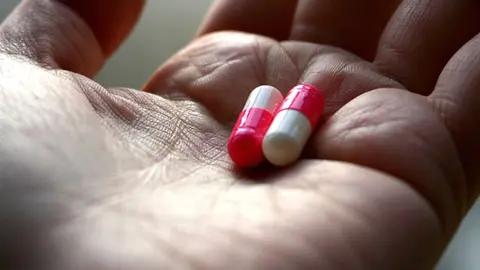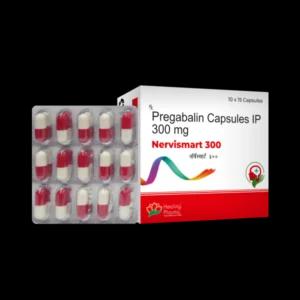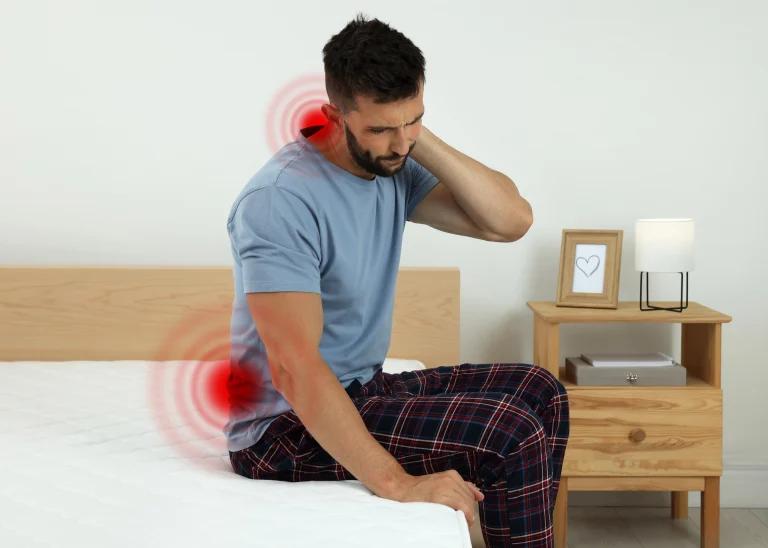
Pregabalin is a prescription drug primarily used for treating conditions such as epilepsy, chronic pain, anxiety, and fibromyalgia. Nonetheless, there are cases where using pregabalin can result in addiction. The growing awareness of pregabalin’s misuse potential has led to its reclassification as a controlled substance in several countries, including the United Kingdom. Here, we will look into the topic of pregabalin drug addiction and the resources accessible to those seeking assistance.
What exactly is pregabalin?
Pregabalin is an anticonvulsant, known by the brand name Lyrica. It works by binding to nerve receptors in the brain and spinal cord, resulting in a decrease in both pain and anxiety. It is recommended to take pregabalin two to three times a day. It is used for the treatment of:
- Pain caused by diabetic neuropathy or spinal cord injuries
- Epilepsy
- Fibromyalgia
- Generalized anxiety disorder
Although pregabalin is effective and generally safe to take when treating certain medical conditions for a large number of people, it also poses a potential for abuse and addiction if misused. If you abuse this medication, you may experience more intense side effects. Individual factors, including genetics and a personal history of substance abuse, can play a role in the speed at which addiction develops. Let’s examine the characteristics of pregabalin addiction.
Signs of pregabalin dependency
Possible indications of developing an addiction to pregabalin are:
- Taking doses higher than the recommended amount to experience desired effects or reduce withdrawal symptoms
- Despite experiencing negative consequences, individuals may have difficulty reducing or discontinuing their use of pregabalin
- A significant amount of time is dedicated to acquiring, utilizing, and recuperating from pregabalin
- Pregabalin is still being used despite experiencing issues in relationships, work, or school as a result
- When pregabalin is not taken, common symptoms such as anxiety, difficulty sleeping, and feeling nauseous may occur
- Attempting to conceal or deceive about the amount of pregabalin being consumed
- Experiencing a shortage of pregabalin before the scheduled refill date
- Prioritizing pregabalin over family, work obligations, and responsibilities
Consequences of pregabalin addiction
Misuse and addiction to pregabalin can have far-reaching consequences, both for the individual and the healthcare system. Recognizing these risks is crucial for informed decision-making and effective management.
Overdose and toxicity
While pregabalin alone rarely causes fatal overdose, the combination of pregabalin with other central nervous system depressants, particularly opioids, can significantly increase the risk of respiratory depression and death.
Physical and psychological dependence
Prolonged use of pregabalin can lead to the development of physical and psychological dependence, characterized by withdrawal symptoms upon discontinuation. These withdrawal effects can be severe and may include anxiety, insomnia, and even seizures, further complicating the treatment and recovery process.
Societal and economic impacts
The widespread misuse of pregabalin can have significant societal and economic implications, including increased healthcare costs, reduced productivity, and a strain on addiction treatment resources.
Signs of addiction or withdrawal from pregabalin can manifest physically through physical symptoms such as tremors, abdominal pain, diarrhea, anxiety, aggression, and the exacerbation of underlying conditions, such as heightened nerve pain. Additionally, there is a potential for psychological dependence, which can be indicated by obsessive thoughts revolving around pregabalin and utilizing it as a coping mechanism for stress and emotions.
Why is pregabalin use potentially addictive?
Several factors can contribute to the potential for addiction to pregabalin among certain individuals:
Alterations in neurochemicals
Pregabalin targets the GABA receptors located in the brain to alleviate anxiety and pain. Consistent usage may cause changes in GABA functioning and result in dependence.
Feelings of bliss
Pregabalin can sometimes induce euphoric effects due to the release of pleasure-inducing neurotransmitters such as dopamine, which further encourages its consumption.
Self-prescribing
Pregabalin is commonly used to treat both pain and anxiety. However, individuals with preexisting conditions may turn to it as a means of managing symptoms rather than addressing the underlying issue of mental health.
The potential for a situation to escalate
The common practice of gradually increasing doses can make it more difficult to stop taking pregabalin without experiencing withdrawal effects.
Mixing chemicals
Combining pregabalin with other sedatives, such as alcohol, can heighten the chances of overdose and addiction.
History of substance use disorder
In patients with a history of substance use disorder (SUD) prescription drug addiction is more likely to occur.
Seeking assistance for pregabalin dependence
For individuals who are facing challenges with misusing or becoming addicted to pregabalin, there are addiction treatment options that can be accessed through the NHS or private means for themselves or their loved ones.
Consult your doctor
One should openly discuss any signs of addiction with a medical professional and request to be referred to an addiction specialist or treatment service. It is also possible for a doctor to prescribe medications for a safe detox from pregabalin.
Treatment for addiction on an outpatient basis
Participating in therapy sessions, whether in a group or individually, can effectively tackle underlying issues, helping you to acquire techniques for dealing with problems, and reduce the risk of falling back into harmful behaviors.
Recovery program
The self-management and mutual aid program utilizes cognitive behavioural techniques to modify harmful patterns and beliefs surrounding substances.
Replacement therapies
Replacement therapies may be employed with medical supervision in certain situations, to reduce cravings and symptoms during pregabalin withdrawal.
Conclusion
To successfully overcome pregabalin addiction, it is crucial to take certain key measures. These include being honest and transparent about your use of pregabalin, seeking and accepting support from others, addressing any underlying problems, and putting in place a variety of strategies such as therapy, support groups, and lifestyle adjustments to help recovery.
Sources
- A case of pregabalin addiction – PMC
- How addictive are gabapentin and pregabalin? A systematic review – PubMed
- Fatalities associated with gabapentinoids in England (2004–2020) – Kalk – 2022 – British Journal of Clinical Pharmacology – Wiley Online Library
Medical Disclaimer
NowPatient has taken all reasonable steps to ensure that all material is factually accurate, complete, and current. However, the knowledge and experience of a qualified healthcare professional should always be sought after instead of using the information on this page. Before taking any drug, you should always speak to your doctor or another qualified healthcare provider.
The information provided here about medications is subject to change and is not meant to include all uses, precautions, warnings, directions, drug interactions, allergic reactions, or negative effects. The absence of warnings or other information for a particular medication does not imply that the medication or medication combination is appropriate for all patients or for all possible purposes.










